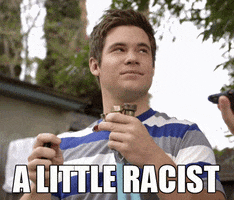He visited his mother's grave for the first time after spending 43 years in prison for a murder he didn't commit
(CNN)The first thing Kevin Strickland did after being exonerated for a triple murder he didn't commit was visit his mother's grave.
"To know my mother was underneath that dirt and I hadn't gotten a chance to visit with her in the last years ... I revisited those tears that I did when they told me I was guilty of a crime I didn't commit," Strickland told CNN's Brianna Keilar Wednesday.
At the age of 19, Strickland, who is now 62, was convicted in 1979 of one count of capital murder and two counts of second-degree murder in a triple homicide in Kansas City, Missouri. He received a 50-year life sentence without the possibility for parole and served 43 years of that sentence behind bars at Western Missouri Correctional Center in Cameron, Missouri, -- until this Tuesday, when Senior Judge James Welsh filed his ruling to set aside Strickland's conviction.
Strickland said he learned of his release through a breaking news report that interrupted the soap opera he was watching Tuesday.
All criminal counts against Strickland were dismissed. His release makes his confinement the longest wrongful imprisonment in Missouri history and one of the longest in the nation, according to The National Registry of Exonerations.
Facing a world he doesn't know much about
Strickland's first night out of prison was a restless one, where thoughts of returning to prison, among others, kept him awake, he said Wednesday.
"I'm used to living in a close, confined cell where I know exactly what's going on in there with me," he said. "And being home and you hear the creaks of the home settling and the electrical wiring and whatever else ... I was kind of afraid. I thought somebody was coming to get me."
Now that Strickland is a free man adjusting to a new world -- one without being confined to a cell and subjected to regimented prison routines -- he's working on building a home and life for himself without any financial help from Missouri.
In Missouri, only those exonerated through DNA testing are eligible for a $50 per day of post-conviction confinement, according to the Innocence Project. That was not the case for Strickland.
Thirty-six states and Washington, DC, have laws on the books that offer compensation for exonerees, according to the Innocence Project. The federal standard to compensate those who are wrongfully convicted is a minimum of $50,000 per year of incarceration, plus an additional amount for each year spent on death row.
A GoFundMe account has been set up by the Midwest Innocence Project to help him restart his life.
Convicted as a teenager, exonerated as an adult
Four people were shot in Kansas City, Missouri, on April 25, 1978, resulting in three deaths, according to CNN affiliate KSHB. The only survivor of the crime, Cynthia Douglas, who died in 2015, testified in 1978 that Strickland was at the scene of the triple murder.
Douglas sustained a shotgun injury and told police then that Vincent Bell and Kiln Adkins were two of the perpetrators. But she did not identify Strickland, who she knew, as being at the scene until a day later, according to KSHB, after it was suggested to her Strickland's hair matched Douglas' description of the shooter. Douglas claimed her initial failure to identify him was due to the use of cognac and marijuana, according to KSHB.
But for the past 30 years, she has been saying that she made a mistake and falsely identified Strickland. According to KSHB, Douglas made efforts to free Strickland through the Midwest Innocence Project.
The two assailants she identified at the scene both pleaded guilty to second-degree murder and each ended up serving about 10 years in prison for the crimes, according to Strickland's attorney, Robert Hoffman.
Over the past year, there have been several efforts calling for Strickland's release.
In May, a petition to the Missouri Supreme Court for his release was filed with an accompanying letter detailing the results of an investigation by the county prosecutor's Conviction Integrity Unit. The group reviews post-conviction claims of innocence where new and credible evidence of innocence exists.
In May, Jackson County Prosecutor Jean Peters Baker was joined by Strickland's attorney and the Midwest Innocence Project to present evidence that has surfaced since his conviction, according to court documents. But in June, the Missouri Supreme Court declined to hear Strickland's petition.
Later that month, Missouri Gov. Mike Parson released a list with 36 people who were pardoned by him, but Strickland was not one of them.
Earlier this month, Strickland testified during a three-day evidentiary hearing -- which involved eyewitness testimony given under oath -- and the evidence presented was sufficient to exonerate him.
In 2020, there were 129 exonerations nationwide. Defendants exonerated last year lost a total of 1,737 years behind bars, an average of 13.4 years per exoneration, according to a report from The National Registry of Exonerations. And 30% of wrongful convictions in the registry's database can be traced back to mistaken eyewitness identifications.
